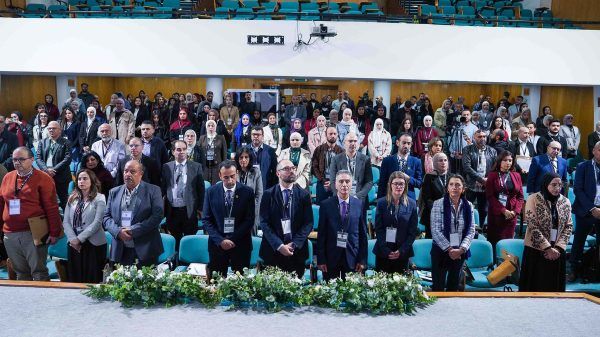
There may still be one last chance for a two-state settlement of the Israeli-Palestinian conflict. This will require an immediate but radically different approach to the international community’s efforts in peacemaking. Rather than try to engage the two sides in renewed negotiations, President Obama, acting on behalf of the Quartet, should make an offer to both sides which neither side can refuse. He should present a summary of a pre-drawn blueprint of a settlement to the leadership on both sides, and rather than asking them to enter into a new marathon of negotiations over it, or even to accept or reject it, he should simply request that they put it before their respective publics for a vote: the Israeli side through a referendum, and the Palestinian side through an electoral process.
Some preliminary footwork by Senator Mitchell could be done before the the terms of such a settlement can be finalized. Full use of the Saudi-led Arab peace initiative can be made, thus ensuring Arab support and Israel’s eventual integration into the Middle East. Countless working papers and semi-agreements already dealt with over the years by the two sides, whether in formal or informal talks, can also be made use of. The summary as well as the blueprint should eventually be made available in full to both publics.
Failing a U.S-led initiative as herein outlined, the international community led by the United Nations could still spearhead such a move. Either way, the main idea would be to transcend the impasse facing the formal negotiators by giving their publics an active role in the peace process.
A few caveats and explanations are in order. To start with the caveats, the two publics should be given the choice to vote conditionally—thus conditioning their positive answer on a similarly positive answer from the other side. This will remove one obstacle from the way, helping skeptics on both sides to give this initiative a chance. Second, results should appear simultaneously, or on the same day. Third, this request could be accompanied by a felt, if faint, ultimatum to one or both sides (as appropriate) in the eventuality of a negative result or results. Different points of pressure, all less than brute force, and all painful to one or the other of the two sides, can here be itemized. An intimation of possible adverse effects to a negative outcome—if intelligently articulated—may help the preeminence of reasonableness on both sides. Finally, both sides should be made to understand that this solution, once approved, will have the guaranteed support and protection of the international community.
As for the explanations: First, it is highly unlikely in the present climate, especially given the results of the Israeli elections on one side and the results of the last Palestinian elections on the other, that the teams of the two representative leaderships (the politicians, the lawyers, the negotiation “experts“) could now negotiate a settlement in real-time where more moderate leaderships have failed in the past. To invite the two sides to the labyrinths of negotiations now is surely to invite them to a dead-end. Therefore it is (even if just by default) best to bypass them, appealing directly to the peoples.
This appeal to the grassroots, secondly, makes sense in spite of the apparent hardening of positions on the two sides for two reasons: opinion polls have shown quite consistently and for a number of years that there are majorities on both sides favoring a two-state settlement over other options (or believing it to be the only solution, if any exists); second, the noticeably hardened positions might therefore simply express the disappointment and frustration each side now feels at the failure of the peace process to bring about such a settlement.
Another explanation is in order here. While only a referendum according to this plan will suffice as a democratic means of measurement in an experienced Israeli democracy which has in any case just undergone a process of elections, the value of an electoral process on the Palestinian side on the other hand will be felt at more than one level: it will settle the now-existing confusion as to which of the two Palestinian leaderships (Hamas or Fatah) has legitimacy; it will engage Palestinian society in a much-needed open and public discourse addressing the hardcore issues that need to be decided upon; it will eliminate any equivocation or ambiguity in the position of the party upholding that solution as its political platform, thus ensuring commitment to that solution once elected; it will allow the two major parties now fighting for primacy in the Palestinian community to compete at the level of tangible political programs, thus minimizing the chances in the post-election period of major civil fractures; and, finally, it will increase the chances for the Mahmoud Abbas-led faction in elections that are already due, but in which Abbas’s faction is bound to lose if those elections are held now and/or in the absence of a tangible solution “in-hand.”
What, it may now be asked, would happen if one or both sides were to give a nay vote? The answer, simply, is that whereas the failure of this attempt may increase the frustration all around of those seeking peace, this increased frustration, on the other hand, and its possible product, will be incomparable in weight and value to the potential positive effects of the experiment in case of success, making this a truly worthwhile risk to take. From the point of view of the U.S. Administration, the pursuit of a “containment policy” in case of failure would not be very different from the kind of diplomatic effort available today, while success so quickly into his first term would give President Obama an incredible boost in international affairs.
The new U.S. Administration may choose, of course, to do more of the same—convening stellar Annapolis-style international charades (such as the recent Sharm el-Sheikh financial summit), where world leaders can gratify themselves with illusory achievements; working on the assumption that the Palestinian Authority can be made to survive merely as a banking service to an occupied people, propped up by a technically efficient but increasingly unpopular security apparatus; sufficing itself with the use of the same soft-scolding policy to their spoiled child for the latter’s infringement of international law and human rights, etc.
But let there be no mistake: the sure product of all this meandering and inevitable procrastination is the failure of the two-state solution. In idealistic terms, of course, it is arguable this may not be a bad thing, for it is not clear that a Jewish State really answers the genuine problem of Jewish security, let alone the question of full justice for the Palestinian people. But in practical terms at least, what is clear is that a failure to bring about a two-state solution today is only bound to unleash further human suffering on both sides. This, besides the more general problem to world security that will be posed by a default binational apartheid reality in this region.
If the U.S. wishes there to be a two-state solution, then there really is no other option but to impose it, softly, and now, and on both sides, as already explained. At this stage, it will not happen any other way. And at a later stage, it will just be too late for it to happen at all.







